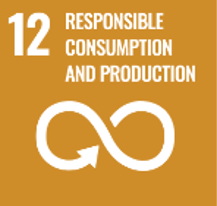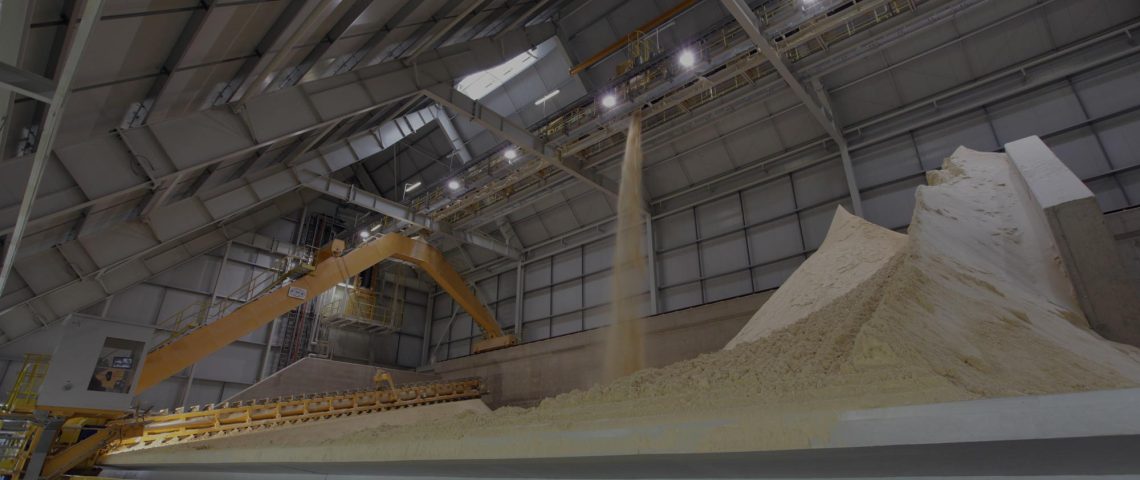-
Custom indicator
-
103 (306)
According to PGE’s strategy, one of the ways to achieve the goal of climate neutrality by 2050 is to implement the principles of circular economy in all areas of activity. Actions taken by PGE to close cycles of raw materials are aimed at the optimum use of resources, protection of natural resources and mitigation of adverse environmental impact by, inter alia, reducing the volume of generated waste.
Processes and assets that are in alignment with the circular economy include:
- extending the life cycle of raw materials and materials used,
- reducing energy losses and material waste,
- processing waste into wholesome products in order to minimise waste,
- reclamation and restoration of investment values of post-industrial sites.
The concept of re-using combustion by-products has been around in the energy sector for over 20 years. Reduction of emissions to the atmosphere causes an increase in the amount of substances captured in air protection systems and thus an increase in the possibility of using combustion by-products. PGE Group places strong emphasis on the economic use of combustion by-products, implementing the concept of reducing environmental footprint in practice. The reuse of combustion waste in various sectors of industry brings tangible benefits to the environment:
- does not give rise to the need to allocate new land for the construction of landfill facilities and associated infrastructure,
- reduces the use of natural resources (e.g. natural gypsum, aggregates) and thus reduces the area of degraded land associated with their extraction;
- leads to a reduction in nuisance caused by landfills, both for people and the environment;
- reduces the cost of doing business.
By conserving the Earth's natural resources, we remove carbon dioxide from the atmosphere. We safeguard raw materials and breathe cleaner air. And natural deposits remain untouched, preserved for future generations.
Dedicated Circular Economy segment
PGE Group has set up a dedicated Circular Economy segment, where PGE Ekoserwis plays the leading role. Its activities are focused on the implementation and deployment of ecological and economic solutions in the area of resources of raw materials and post-industrial waste from the energy industry. The main objective of the new segment is a coherent, strategic and business-oriented management of post-industrial raw material streams in line with the circular economy, taking into account care for the environment and sustainability.
The Circular Economy segment’s priority is to promote, create and implement circular economy principles across the entire PGE Group and to increase the degree of utilisation of raw materials involved in energy generation processes. This is a response to the challenges facing the Polish economy both in the long term and in the coming years as an important element of the transition process. An efficient Circular Economy model will make it possible to carry out an energy transition that will fit in with national challenges in the area of waste-free and environmentally friendly energy.
Adequately ensuring the use of secondary raw materials is connected with the necessity to implement the principle of priority for these raw materials in economic processes. The EU Circular Economy package, which reduces and eventually eliminates landfilling in principle, is a major challenge for the energy and mining industries. At the same time, this is an opportunity for the energy sector and a benefit resulting from the preservation of natural resources for future generations and lower environmental impact.
Combustion by-products
-
301-3
Combustion by-products are the result of electricity and heat production in generating units using fossil fuels. Combustion by-products management at PGE Group, based on circular economy, leads to the use of waste as full-value substances in other branches of the economy (cement industry, construction, road construction, mining), and in consequence to the reduction of the volume of generated final waste. In 2021, a total of nearly 11 million tonnes of combustion by-products in the form of ash, slag, ash-slag mixture and gypsum from flue gas desulphurisation systems were generated in PGE Group’s power plants and CHPs during the production of electricity and heat, of which as much as 65% was economically used, including as full-value products which find their use in many diversified economic directions. The reuse of combustion by-products in various industrial sectors brings tangible environmental benefits. The inconvenience of landfills, both for people and the environment, is reduced as there is no need to allocate new land for their construction, with accompanying infrastructure.
Combustion by-products are successfully replacing natural raw materials (e.g. natural gypsum, aggregate), thus reducing their extraction and the accompanying emissions. The responsible use of secondary raw materials, such as gypsum from flue gas desulphurisation systems, is a good example of implementing the principle of priority for secondary raw materials in economic processes. Such measures help to protect fossil resources for future generations.
Greenhouse gas emission reduction is not insignificant in production cycles that use combustion by-products. Examples include reducing the carbon footprint of cement production using fly ash, or gypsum boards using synthetic gypsum. The use of high-calcium ash from energy generation reduces the CO2 emissions that accompany the cement and lime industries in the production of traditional binders (i.e. cement or lime). Therefore, the conventional energy industry contributes to part of the avoided CO2 emissions due to the use of combustion by-products supplied from the energy industry to the cement industry. According to a report by the National Centre for Balancing and Emissions Management, thanks to the production of binders from combustion by-products, which successfully replace cement and natural lime in selected geotechnical applications – mainly in road construction, the reduction of CO2 emissions over a 5-year period may be reduced by almost 568 thousand tonnes of CO2.
The methods of combustion by-product waste management applied by PGE are eco-friendly and constitute an alternative to landfilling. Solutions are developed using the company’s own research and development facilities and laboratory, and are supported by leading scientific and research institutions with which the company cooperates on a regular basis. The combustion by-products and gypsum produced are monitored for quality and, depending on the parameters, are directed to the appropriate use.
Manufacturers of cement, concrete, ceramics, mining and road construction, among others, benefit from the use of proven and safe solutions. Products made using combustion by-products technology meet all the requirements for building materials or products.
By-products of combustion are also used in the reclamation and macro-levelling of post-industrial and degraded land, restoring many areas to their former landscape and natural beauty. They are also widely used in the mining industry to protect pits.
In 2021, the largest volumes of combustion by-products were directed to the construction segment.
Mining by-products
The minerals that accompany lignite deposits, called mining by-products, play an important role in the sustainable supply chain of raw materials and materials. These include limestone, lake chalk, sands, clays, flint cobbles and erratic boulders in the form of granitoids and other Scandinavian rocks. Management of associated minerals contributes to rational deposit management and protection of the earth’s surface.
The reclamation and restoration of investment values of post-industrial sites is an integral stage in ending the extraction of energy minerals. The decommissioning of pits is aimed at making them usable and restoring them to the environment. In the case of lignite pits, international experience shows that water reclamation is most popular option. For this purpose, macro-levelling is carried out using the earth and rock masses accumulated during the exploitation phase in order to shape the land appropriately for leisure and recreation or in another direction.
Reclaimed areas can also be an attractive area for investments in renewable energy sources. The location of these areas in the vicinity of energy connections will allow them to be used in the future for the construction of wind farms, photovoltaic farms or energy storage facilities.
Circular Economy Research and Development Centre
In a time of transition, PGE faces new challenges related to the development and implementation of waste processing technologies and recovery of raw materials from RES installations, which in a discernible time horizon will also constitute a potential for their optimal use in accordance with the principles of Circular Economy. To be able to achieve this, specialised competence and dedicated research and development activities in this area are required. Therefore, work began in 2021 on the construction of the Circular Economy Research and Development Centre, where projects will be focusing on, inter alia, the recovery and recycling of raw materials from decommissioned RES installations.
The role of the Circular Economy Research and Development Centre is to develop and implement solutions aimed at the optimal economic utilisation of post-industrial energy waste and recovery of valuable raw materials which, when re-used, will reduce the consumption of natural resources and minimise the generation of waste.
The Circular Economy Research and Development Centre will focus on the utilisation of all waste generated in the energy production processes, both from the current conventional energy sector and from the energy sector based on renewable energy sources. The aim of the Centre is to create a centre of competence for research and development in the area of waste management from the energy industry. The specialised facility will have its own research and technical laboratory. The scope of work on advanced projects will include the development of technologies and solutions for waste processing, recovery of raw materials and manufacture of high value products from the resources obtained.



